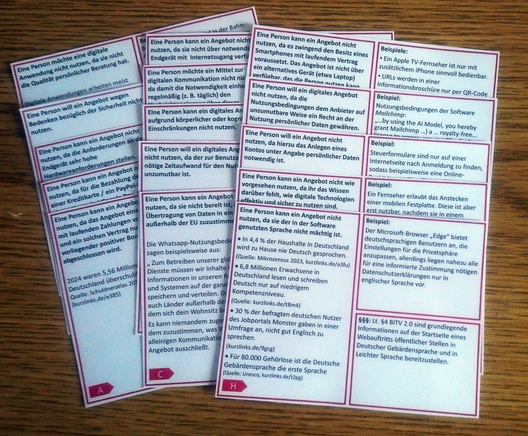Wissenschaftlicher Artikel zu Digitalzwang in der Geschäftsprozessanalyse
Da wir schon beim Thema #Digitalzwang sind: Ralf Laue, Professor für Software-Engineering an der Westsächsischen Hochschule Zwickau, zeigt in einem Fachartikel zum Thema #Geschäftsprozessanalyse in der #Softwareentwicklung, dass Digitalzwang von Anfang an mitgedacht und vermieden werden muss. Er greift dabei die von unserer #Netzphilosophin Leena Simon (@reticuleena) entwickelte Definition von Digitalzwang und einige unserer Beispiele auf.
Laue kritisiert, dass bei der Ausbildung und Planung von Projekten Themen wie Zugänglichkeit und analoge Teilhabe kaum eine Rolle spielen. Stattdessen überwiegen bisher die altbekannten Plattitüden von „Kostensenkung“ und „vollständiger Digitalisierung“.
Erfreulicherweise ist der Artikel ohne Bezahlschranke zugänglich:
„Integration des Aspekts ‚Teilhabe‘ in die Geschäftsprozessanalyse“
https://link.springer.com/article/10.1365/s40702-025-01218-z
(Text aus dem heutigen Newsletter von @digitalcourage)
